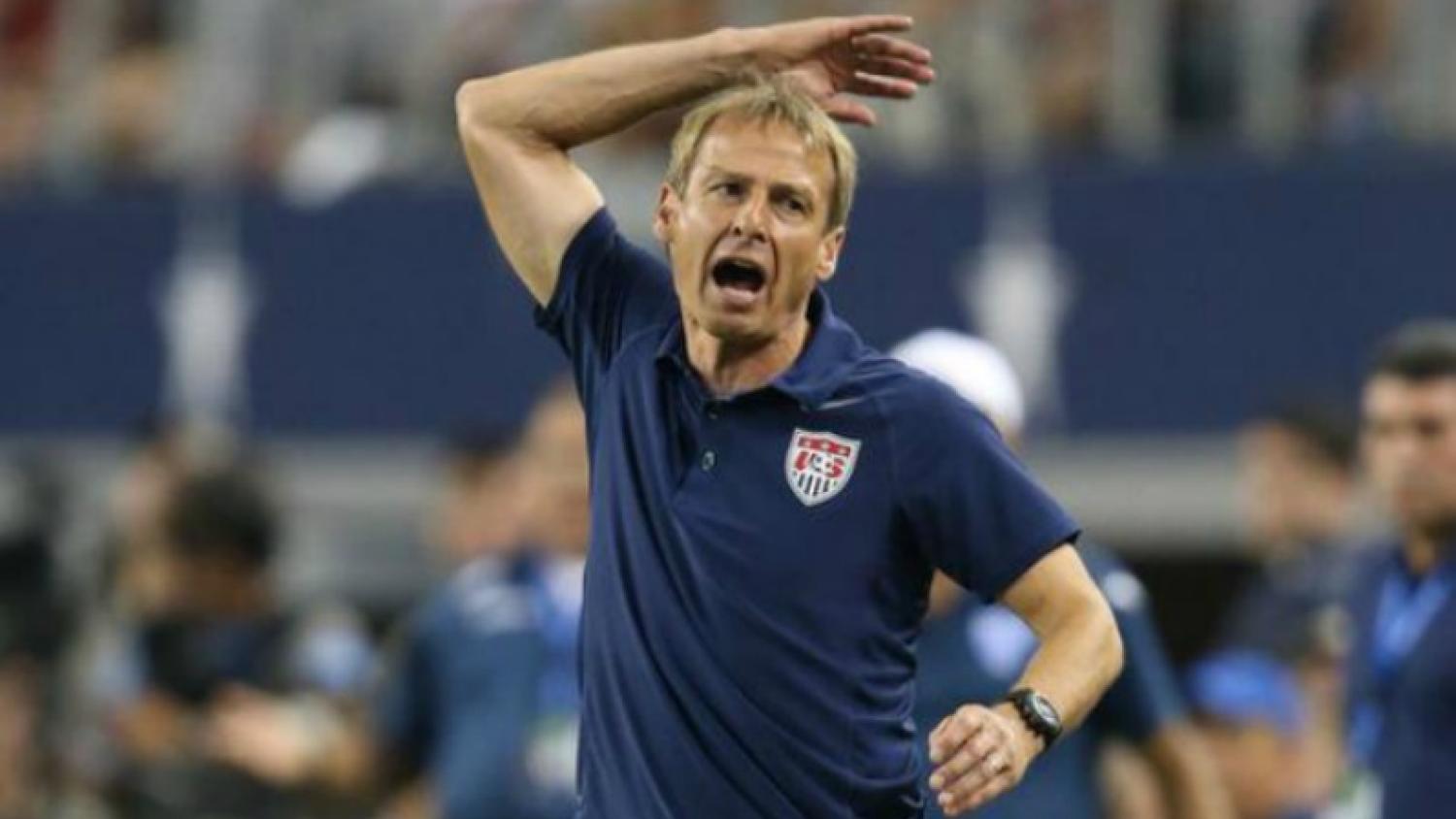July 11th, 2006: Street cleaners are still working on tidying up Berlin’s fan mile after more than half a million Germans had gathered to salute Die Mannschaft on their improbable run to third place in the 2006 FIFA World Cup.
Steins are still being filled at the Hofbrauhaus, German flags are unfurled from countless balconies, and the country is filled with genuine hope for the future. At the center of it all is national team manger Jurgen Klinsmann, the man who’d gone from an imbecilic crock to national hero in just under two years of international management.
Favoring a youthful, attacking and performance-merited lineup, Klinsmann has reinvented the wheel for a country that had previously relied on efficiency and pragmatism.
Players like Lukas Podolski (21), Bastian Schweinsteiger (21), Phillipp Lahm (22), and Per Mertesacker (22) have captured the country's imagination with their emboldened approach, mirroring the ethos of their manager and delivering one of the most captivating semifinal runs in World Cup history. An attacking philosophy has been introduced, a blueprint which will still be followed, to enormous success, years hence.
Despite the overwhelming national love-in, Klinsmann has informed the DFB that he will not be continuing as national team manager, citing fatigue and a desire to spend more time with his family as the key factors in the decision.
July 14th, 2007: The United States U-20 team sits dejectedly in their locker room in Toronto, Canada, wondering what might’ve been. They’ve just lost a World Cup quarterfinal in the most agonizing fashion, a 2-1 defeat to Austria after extra time.
Through the course of the tournament they’ve dazzled and wowed the Canadian public, pummeling Poland, handing a Brazilian team containing Willian, Alexandre Pato, and Luiz Adriano a taste of their own attacking medicine, and defeating a Luis Suarez and Edison Cavani inspired Uruguay with panache.
While displaying the never-say-die and run fast/try hard spirit of most United States teams, this group is also capable of the more subtle arts: disguised through balls, delicious flicks and backheels, intricate one-twos and the will to constantly get forward.
Michael Bradley, Jozy Altidore, Sal Zizzo, Danny Szetela and Freddy Adu emerge with the plaudits. The future of United States soccer, growing in popularity and infrastructure, is tantalizingly bright. This generation of players, coupled with the emerging talent around them, will surely deliver the goods for the US.
October 10th, 2015: Fast forward over eight years and it’s easy to envision a match made in heaven: Jurgen Klinsmann, the innovator and pioneer, has been in charge of the United States National Team for over four years, more than twice the amount of time it took him to revolutionize German soccer.
At his disposal now are the players from that glorious U-20 team, in the prime of their respective careers, coupled with wily veterans and burgeoning new comers. Even if you’d been in a coma throughout that passage of time, you’d recognize the names Bradley and Altidore on the team sheet, along with their complimentary cast.
You'd be forgiven for thinking, "That rascally Klinsmann, he's done it again!". The 2015 Gold Cup Playoff is a massive chance for the United States to stamp their authority on the CONCACAF region, as well as ensure astute preparations for Russia 2018 by qualifying for the 2017 Confederations Cup. However, as the game proceeds past kickoff, that’s when you might begin to sense that something awful has transpired during your lost time. Something is certainly amiss.
Perspiration cascading down his temples, his sweat drenched kit clinging to his abdomen, Bradley now appears locked in a kind of Sisyphean endeavor.
Orchestrating a plodding, overrun midfield, he's seemingly charged with being everywhere all at once.
Prizing the ball from the decrepit soccer recycling facility that is Kyle Beckerman, Bradley surveys his options: Jermaine Jones is suddenly, spectacularly, mobilized. His dreadlocks bouncing, and knee brace seemingly willing, he's whipped into a frenzy of individual heroism that he knows will end with a stunning curler from distance.
Unfortunately, Jones quickly loses the ball, culminating in a necessary tactical foul. Pushed back for an extended period of time, the United States crawls into a veritable shell. All the while, Clint Dempsey scowls at the action around him, determined to look as hard as possible in any photographs that this game might yield.
Jozy Altidore, hamstrings not yet having failed him, chases clipped balls over the top, appearing to hurry and harass his own attempts at controlling the ball. Then there's 2002 World Cup hero DaMarcus Beasley at left back, seemingly chasing shadows.
If Beasley is the answer in the year 2015, what exactly are the questions our federation is asking?
What’s happened? Who’s to blame for this harrowing lack of promise and identity?
While forging workmanlike careers in MLS and NASL, or tramping abroad in a fashion that would make Mark Twain look like a homebody, the 2007 U-20 team has deteriorated from hopefuls to has-beens.
Of the aforementioned American stars of the 2007 U-20 World Cup, the five players have combined to appear for over 40 different clubs in their careers. Now, with seven players ages 30 or older featuring against Mexico, as well as ongoing struggles at the youth level, it’s difficult to say what a US fan should be excited about going into the upcoming slog of World Cup qualifiers. Charged with overhauling American soccer, even Klinsmann appears to have retrogressed with regards to his policy of investing in youth, questioning whether his young players are indeed ready for games of a large magnitude.
Doom and gloom abounds, when suddenly, from the depths of the Internet, a gem like this appears.
October 10th, 2015: Freddy Adu announces his personal plans for the reinvigoration of US soccer with this delicious assist at 0:40.
It's never too late for a generation to become golden.




